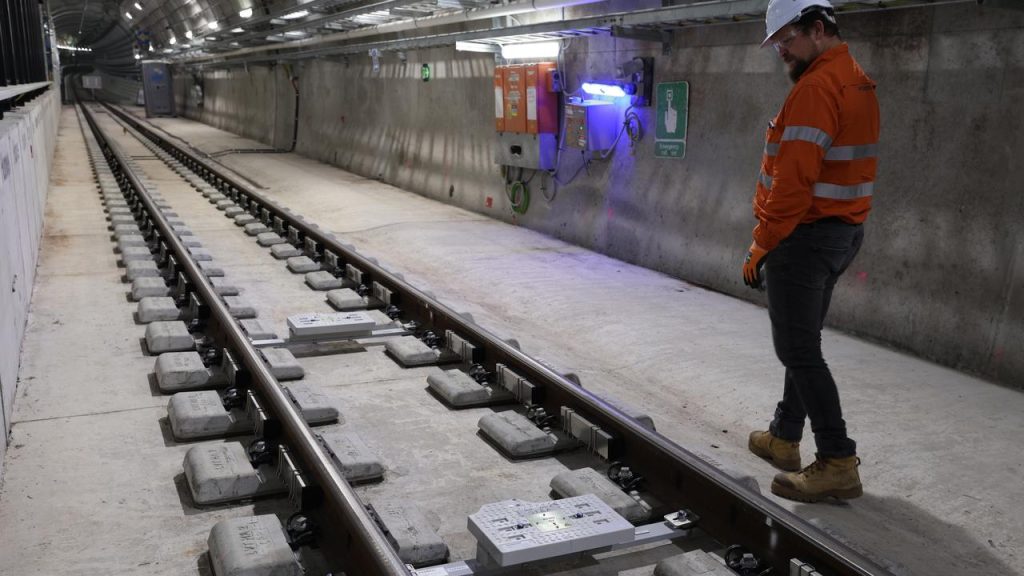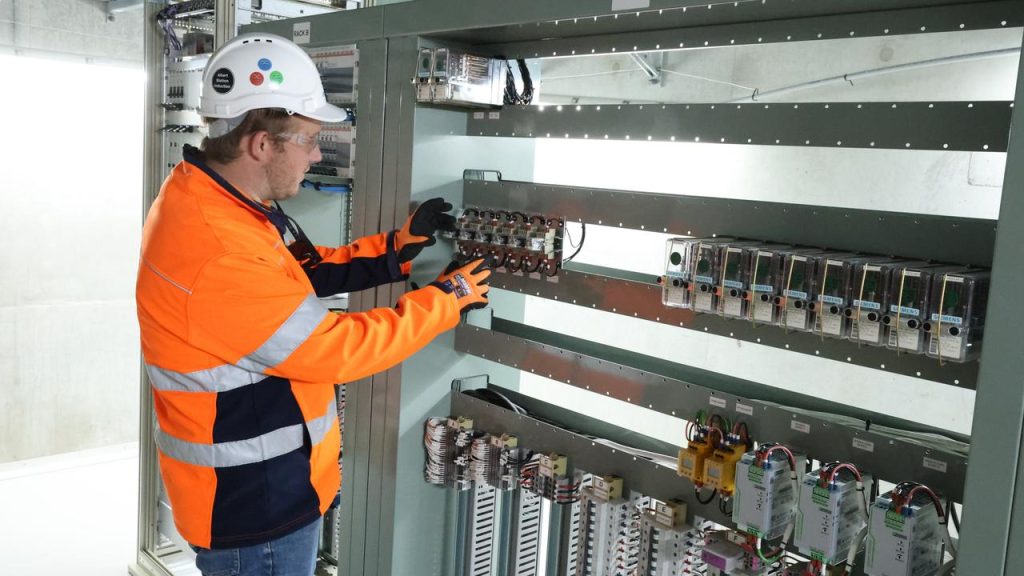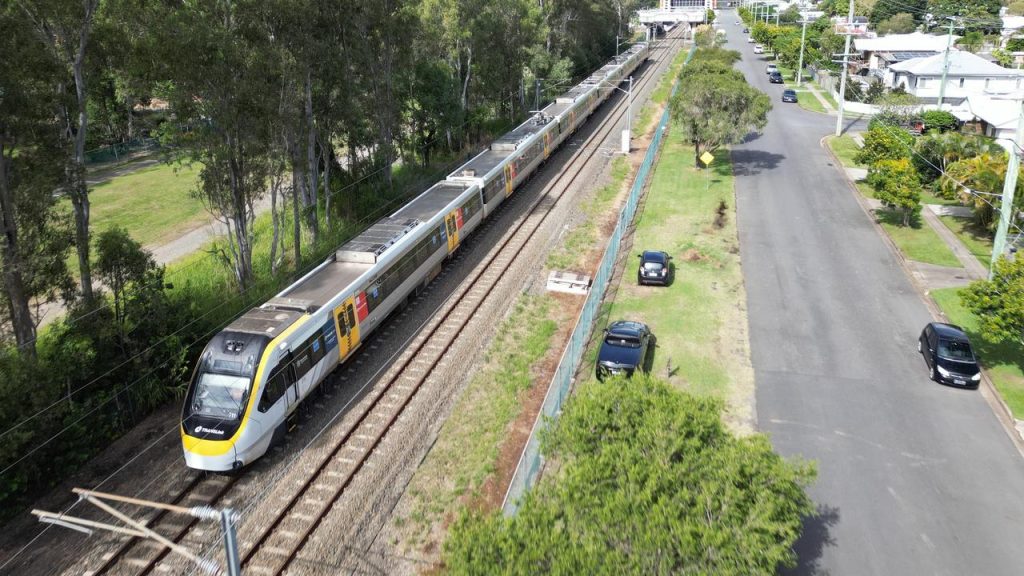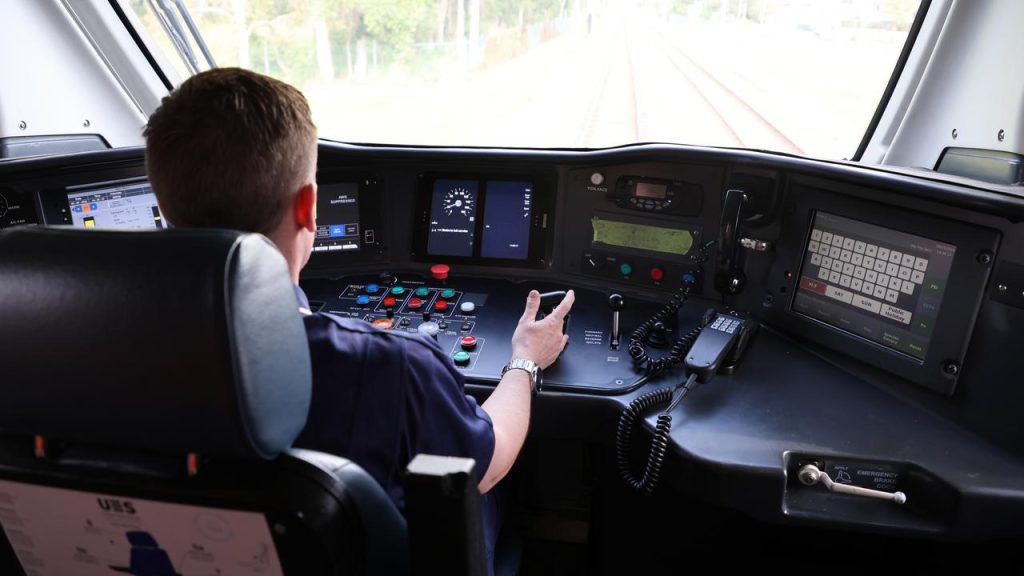Testing the latest signalling technology for the Cross River Rail project and expansion of the South East Queensland rail network is proving a global effort.
From Brisbane to Naples in Italy, more than 1100 tests have been conducted on the European Train Control System (ETCS), which is already operating in cities around the world.
The new world-class digital signalling system being introduced on the network as part of Cross River Rail has already seen testing taking place at laboratories in Brisbane and Naples, on the Shorncliffe line, and at Queensland Rail’s rail management centre.
Significant ETCS elements have been installed, tested and proven so far with about 1000 tests in laboratories and 100 on the track and at the rail management centre.
The aim of the system is to help increase capacity, efficiency and reliability while maintaining safety and increasing network capacity by up to 20 per cent, enabling more trains to travel closer together, more often.

Technology for the European Train Control System in place in a Cross River Rail project tunnel.
Transport Minister Bart Mellish said while the new digital signalling program was being introduced as part of Cross River Rail, ETCS was really just the start of the rail revolution in Queensland.
“This is a program of work that will benefit the entire South East Queensland rail network,” he said.
“Not only will it be used in Cross River Rail’s tunnels, but this hi-tech signalling system will be gradually rolled out across the network.
“Just like air traffic controllers use hi-tech systems to keep planes moving in and out of airports safely and efficiently, ETCS tells trains whether they need to speed up or slow down to move between stations. This new technology will allow trains to travel closer together without compromising safety, which means more network capacity, efficiency and reliability.

European Train Control System technology is put in place as part of Cross River Rail.
“This is a huge leap forward for the rail network and will mean a better, safer and more reliable public transport experience for everyone.”
Around 15,000 ETCS track kilometres have already been completed in tests and following Shorncliffe line testing, there will be testing in the Cross River Rail tunnels.
The digital signalling system will also be extended south of Cross River Rail’s tunnels to Moorooka. An ETCS program has also been established to gradually change the network over the coming decade.
It will also be fundamental in the planned expansion of rail services to the Sunshine Coast, the rail duplication project being undertaken by the Logan and Gold Coast Faster Rail project and the delivery of new public transport assets, including rail stations and the Queensland train manufacturing project stabling facilities on the Gold Coast.
ETCS TESTING
● The ETCS system has been installed as a pilot on the Shorncliffe line.
● Until late this year, some evening services are not running between Northgate and Shorncliffe stations so crews can test the new system.
● Testing is scheduled between most Monday and Thursday evenings, from 7.45pm to the last service.
● Timetabled railbuses are replacing affected train services during system testing.
● The evening midweek closures have been scheduled to reduce impacts to passengers on the Shorncliffe line during peak times.

The European Train Control System under test on the Shorncliffe line.
SCHOOL HOLIDAY TRACK CLOSURES
Rail users are being warned about track closures next month as further work is carried out on the Cross River Rail project.
There will be closures and timetable changes across the South East Queensland network between September 14 and 29 to coincide with the spring school holiday.
On the Gold Coast and Beenleigh lines, there will be closures and service changes during the 16 days.
The Airport, Sunshine Coast/Caboolture, Redcliffe Peninsula, Doomben and Shorncliffe lines will have track closures and service changes between September 21 and 29.
Passengers on the Ipswich, Rosewood, Springfield, Cleveland and Ferny Grove lines face timetable changes over the 16 days. Between September 23 and 27, the lines will also operate on a reduced timetable, with services running every 15 minutes and no express trains.
Cross River Rail Delivery Authority chief executive Graeme Newton said the works required continuous and extensive access to the rail corridor and could not be completed safely or efficiently with trains on the tracks.

A driver testing the European Train Control System.
“Some of the work that will be completed includes the connection of new Cross River Rail track to the existing rail line, station upgrades at Dutton Park and Yeerongpilly, works for the installation of the world-class ETCS signalling system at Fairfield, drainage and signalling works, and ground renewal works between Bowen Hills and Albion,” he said.
“While the works are deliberately scheduled for the quieter school holiday period, we understand these closures may impact some customers.”




Could this be the first implantation of ETCS in Australia?